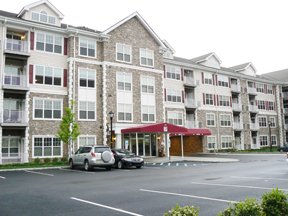In response to criticism that an affordable housing bill he introduced in January included too few details, State Sen. Raymond Lesniak released a revised draft of his bill last week.
Under the revised bill, housing new developments in New Jersey with 20 or more units would have to set aside 10 percent of those units for low- and moderate-income families. Smaller housing developments – those with between five and 19 units – will be required to make five percent of the units affordable.
The bill intends to eliminate the New Jersey Council on Affordable Housing, which has made many specific rules over the years about how much affordable housing should be contained in communities.
In the bill, the oversight of affordable housing policy would be shifted to the State Planning Commission, and current affordable housing mandates could be eliminated.
“The notion that housing units are ‘affordable’ simply because they are townhouses and located in apartment building doesn’t even make sense.” – Kevin Walsh
________
Lesniak said his proposed legislation, which he introduced with fellow State Sen. Christopher Bateman, “will augment the free market rather than stifle it.”
The revised language requires towns to submit to the State Planning Commission a detailed audit of the residential housing in their municipalities. The commission would then determine whether each town in the state has enough affordable housing or needs more.
The impact could be significant for Secaucus. Under COAH requirements, the town is currently required to create about 303 affordable housing units by 2018, a number that town officials have long argued would burden the local school system and municipal services.
Officials are hoping that any new rules will be less restrictive.
However, Lesniak’s proposed changes are controversial. One provision would allow municipalities to pay other towns to take on their affordable housing requirements. This used to be a common practice, but was largely phased out.
Advocates fear that if passed, the bill will exacerbate racial and economic segregation.
Supporters of the bill believe it will foster affordable housing growth in areas that need it most without burdening municipalities and developers.
Current laws
Secaucus has fought against many affordable housing mandates in the past few years.
In an affordable housing plan sent to COAH, the town stated that “land use compatibility is a serious problem in Secaucus because it has been designated for high intensity commercial and industrial uses for many decades…Secaucus is also at the point in history when land inventories are low and more development is occurring as redevelopment.”
COAH most recently updated its formula in June 2008. That is when it told Secaucus that it needs 303 more units. Statewide, COAH wants to see 115,000 new affordable housing units built by 2018.
Under the guidelines released two years ago, municipalities are responsible for ensuring that developers construct one unit of affordable housing for every four units of market-rate housing. Those guidelines increased the percentage of housing units that must be affordable in a development from roughly 11 percent to 20 percent. COAH guidelines also call for the construction of one affordable housing unit for every 16 jobs created within a municipality.
The state defines affordable housing as units that are sold or rented at below-market rates to people whose income meets regional guidelines established by COAH.
Many officials and people in the business community found these requirements too onerous.
‘Bizarre’
Last week, Kevin Walsh of the housing Advocacy group Fair Share Housing said Lesniak’s revised language was “more strange than anything else.” He said that part of it could designate non-affordable units as affordable.
“The notion that housing units are ‘affordable’ simply because they are townhouses and located in apartment buildings doesn’t even make sense,” he said. “All along the Hudson County waterfront there are many apartment building and a few townhouses – but those are high priced, luxury developments. That’s not affordable housing.”
Last week Lesniak did not specify how the state would distinguish luxury condos and rentals from affordable units, but said the Planning Commission would be able to make such a determination.
E-mail E. Assata Wright at awright@hudsonreporter.com.
